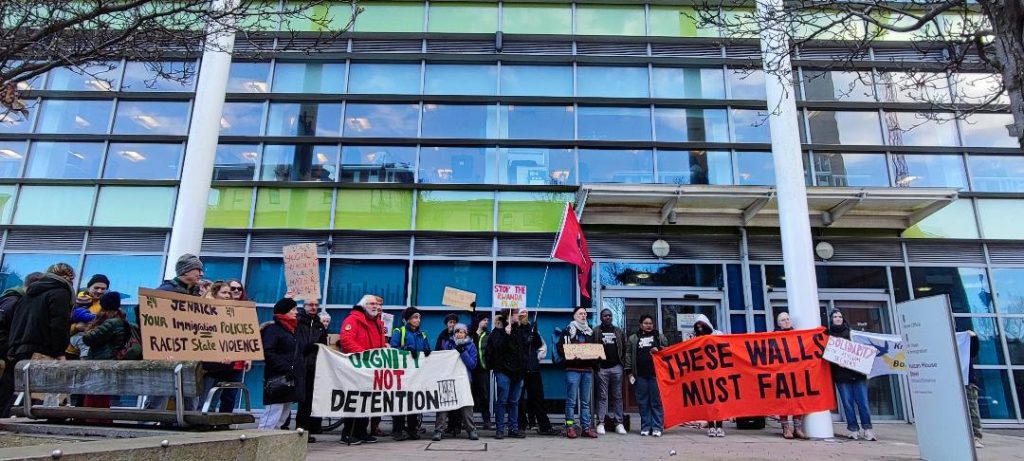
On 15th February, These Walls Must Fall campaigners and Right to Remain staff attended an online information session on immigration detention delivered by AVID. AVID, short for Association of Visitors to Immigration Detainees, is a network for organisations that support people who are in detention.
We asked AVID to hold this session for These Walls Must Fall campaigners and Right to Remain staff, so we can become more informed about the overall and historical context in which the current immigration detention regime operates . As a whole, our knowledge and experience of detention is varied – some people have experienced or been at risk of detention, others have campaigned against detention. This refresher was much needed, especially considering the latest developments at the notorious short-term holding facility in Manston, and the latest women’s immigration detention centre which recently opened in Derwentside.
It is difficult to understand the full picture of detention without knowing the history of detention expansion. Gee from AVID gave us a brief rundown of detention history
Under the New Labour government in 2001, the number of bed spaces in detention centres increased dramatically, making the UK one of the immigration detention hotspots in Europe.
When we discuss detention centres, we can sometimes forget that there are several different types. Immigration Removal Centers (IRCS), short-term holding facilities, prisons and residential holding rooms – a new category introduced after 5th January 2023 – are all different to each, being regulated and run differently.
In the session, we learnt about how AVID builds solidarity with people experiencing detention through their member visitor organisations’ scheduling visits and collecting evidence on life in detention through their Detention Monitoring Group. Our campaigners and staff were eager to find out how we can help to build radical solidarity with those in detention, by strengthening our knowledge in order to campaign effectively. Some attendees wanted to find out how to become social visitors to provide moral support for those in detention centres. Others wanted to know if local opposition to such practices directly results in detention centres being shut down.
We are now witnessing quasi-detention expansion in the form of the use of barracks and hotels as accommodation for people seeking asylum, where non-British people are treated as potentially and inherently dangerous. That perception is becoming the norm, leading society to assume it is okay to lock up migrants in prison-like conditions.
Both These Walls Must Fall campaigners and Right to Remain staff learnt a lot from the information session held by AVID. We are now exploring how to use our knowledge on detention to renew our campaign against detention.
